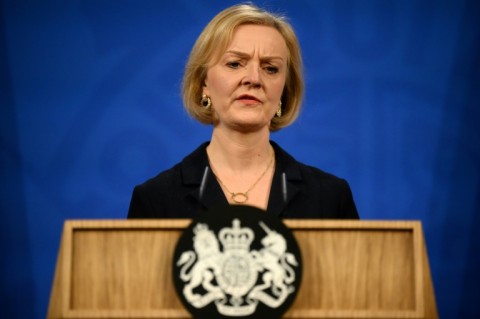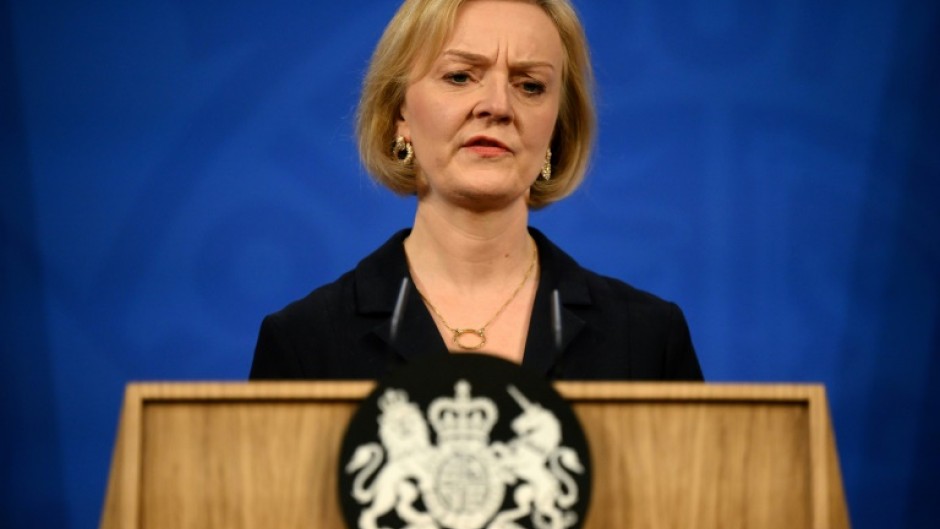
LONDON - The pound fell Friday as under-fire British Prime Minister Liz Truss sacked her finance minister and made a dramatic policy U-turn, while equities rallied for a second day despite surging US inflation.
The yen held around three-decade dollar lows as rampant US consumer prices cemented expectations of more hefty Federal Reserve rate hikes.
Truss sacked Kwasi Kwarteng as finance minister as pressure mounted on her government following last month's big spending, tax-slashing budget, which spooked markets.
The September 23 budget sent the pound tumbling to a record dollar low near parity with the greenback and bond yields surged, before stabilising thanks to interventions by the Bank of England.
Sterling sank 1.2 percent to $1.1188 after Prime Minister Liz Truss dismissed Kwarteng. It reduced those losses as Truss appointed Jeremy Hunt as her new finance minister.
"The soap opera that is UK politics continues to dominate FX markets Friday," said Stephen Innes, managing partner at SPI Asset Management.
Truss later announced a dramatic policy U-turn, stating the "need to act now to reassure the markets", abandoning plans to eliminate an increase in corporation tax.
UK 10-year government bond yields fell further following the announcement, despite the Bank of England having insisted the costly market interventions would end Friday.
London's FTSE 100 was 1.6 percent higher in afternoon trading.
READ | UK PM Truss under fire as pound sinks
- 'Astonishing rebound' -
Stock markets continued to push higher Friday after rising on Thursday despite data showing strong inflationary pressures in the United States.
"Markets staged an astonishing rebound despite a hotter-than-expected inflation report in the United States," said Interactive Investor analyst Richard Hunter on the broad-based gains.
"The reasons... were not immediately clear, although traders pointed to a technical rebound as investors unwound defensive positions which had been in place ahead of the inflation report."
US CPI inflation data showed prices rose last month at a faster clip than expected, despite this year's series of Fed interest rate hikes, which have fanned fears of a global recession.
The month-on-month reading came in double estimates, while core inflation -- which strips out volatile energy and food prices -- was also elevated.
The figures sparked a sharp plunge on Wall Street but the selling quickly reversed, and all three main indices finished the day with gains of more than two percent.
Wall Street opened higher on Friday as a number of top banks kicked off earnings season, JPMorgan Chase, Citigroup, Wells Fargo and U.S. Bancorp all beating analysts' expectations.
"None of those banks missed consensus earnings estimates, like investment bank Morgan Stanley did, yet their reports were laced with increased provisions for credit losses," noted market analyst Patrick O'Hare at Briefing.com.
US retail sales came in flat in September, below analyst expectations of a 0.2 percent rise.
"The key takeaway from the report is that it is not adjusted for inflation, so the lackluster numbers for September suggest consumers were pulling back on spending activity in the face of high inflation," O'Hare said.

